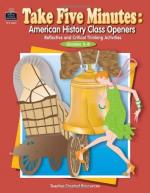|
This section contains 969 words (approx. 4 pages at 300 words per page) |

|
Second-Class Citizens.
Women in early America did not share in the political reform that followed the Revolution. In many ways they were strangers to the law and to justice. Married women were not treated as full citizens but as extensions of their husbands. Their rights were severely limited by old common law notions that viewed the legal existence of a married woman as, in Sir William Blackstone's words, "suspended during the marriage, or at least . . . consolidated into that of her husband." This idea of consolidation was known as "coverture." Single or widowed women could sue or be sued, convey property and write wills, but a married woman generally had no such rights. Marriage meant that the husband owned his wife's labor, controlled her property and could—as if she were property—collect damages against anyone who caused her injury. Because most women...
|
This section contains 969 words (approx. 4 pages at 300 words per page) |

|




